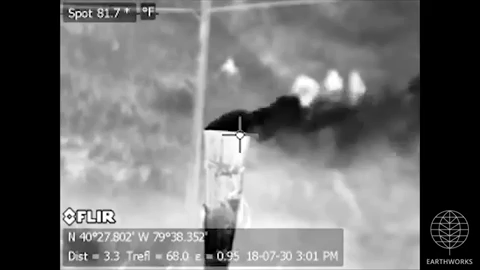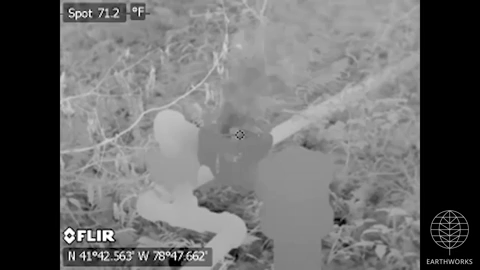
Eco-Explainer: Why Methane Matters
Methane is the only pollutant that is also a commodity (natural gas) and it isn’t released during combustion, it just leaks out of every facet of the gas industry.
Methane comes from lots of places.
Methane is emitted during the production and transportation of coal, natural gas, and oil.
Cows burp it out. Philadelphia Gas Works (PGW) delivers it to your home and is the nation’s largest public gas utility.
The Philadelphia Water Department collects methane as it is emitted from our sewage in an anaerobic digester and burns it for electricity. The Energy Co-op supplies its members with Renewable Natural Gas (RNG) comprised primarily of methane harvested from landfills. (Anyone who receives a gas bill from PECO or PGW is eligible to enroll in their RNG program, by the way).
Philadelphia and Pennsylvania are at the center of the methane situation. Pennsylvania is only behind Texas in gas production nationally and was only behind West Virginia in terms of drilling increases from 2019 to 2020. In 2019, Pennsylvania set a record high for gas extraction. Then they broke that record in 2020. In 2020, the gas industry also broke a record for the smallest amount of “impact fees” given to local governments to help municipalities deal with the effects of gas drilling.
The state of Pennsylvania is currently in the process of finalizing a rule to limit the leakage of methane and other volatile organic compounds from existing natural gas drilling sites and compressor stations. In September, the U.S. Environmental Protection Agency will propose a similar rule that will cover new and existing gas facilities across the county. (Plug: You can make an official comment here!)
A recent Drexel study concluded that in Philly methane leaks four times the amount the EPA has previously estimated. A Penn State study using air crafts found that methane leaks 48% to 76% more than EPA estimates across the country.

Similar to Pennsylvania’s attempted (now abandoned) effort to stop municipalities from banning plastic bags, the State Senate is considering a bill that would prevent localities from banning natural gas hookups as a part of their local climate action plans. The City of Philadelphia is currently engaged in the PGW Diversification study in the effort to identify how PGW can coexist with the city’s goal of carbon neutrality by 2050, outlined in the City’s Climate Action Playbook.
Methane traps heat in our atmosphere at a rate 87 times higher than carbon dioxide over a 20-year time period and is estimated to be responsible for a full quarter of the current climate change effects we are currently experiencing.
June 2021 was the hottest June ever recorded on the North American continent.
So why does this matter?

We’ve recently changed where both our electricity and greenhouse gases come from.
In 2003 there were 24 coal-fired power plants in Pennsylvania, in September there will be 5. Gas power plants now supply 40% of the country’s electricity and over 50% in Pennsylvania. In 2020 alone, 13 coal-fired power plants announced they would soon close nationally.
Transportation is now the dominant source of carbon dioxide emissions across the country, and maritime shipping produces more CO2 than air travel. A plan is currently being developed to cap the allowable amount of retail gasoline to be sold in some states and regions.
Since transportation is difficult to regulate, it puts even more emphasis on decreasing methane pollution from the oil and gas industry. And because methane simply leaks out of oil and gas infrastructure rather than being emitted in a smokestack or tailpipe like carbon dioxide, we need to rethink how we look at pollution sources.
An impactful measure to reduce methane leakage is to replace, repair or retrofit natural gas-controlled pneumatic devices currently used for natural gas drilling, sometimes referred to as “high bleed pneumatics.”
High-bleed pneumatics use compressed natural gas to control pressure in gas lines, causing the widespread venting of natural gas when the pressure is too high. This is completely unnecessary. Cost-effective technologies are available to eliminate emissions from continuous-bleed and intermittent-bleed pneumatic controllers and pneumatic pumps. This technology is not new and is generally considered to be the industry standard.
Increasing pollution monitoring and leak repair in conjunction with using modern pneumatic technology that does not employ natural gas could lower methane emissions by almost 7 million tons by 2025. Capturing or reducing methane leakage at storage tanks and compressor stations would additionally reduce greenhouse gas pollution.
Clean Air Task Force has published a report detailing how the EPA can reduce methane emissions by 65% by 2025, eliminating 7.8 million tons of methane from being unnecessarily emitted into the atmosphere.









